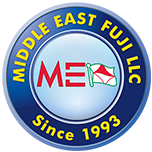
Consumers in the UAE can look forward to a greater variety of foodstuffs and ingredients, as international players such as the EU increasingly look to the UAE for exporting their products, experts have said.
Speaking to Khaleej Times at the Sial Middle East exhibition in an exclusive interview, Ambassador Patrizio Fondi, head of the EU Delegation to the UAE, said that more EU products will make their way to UAE as consumers become conscious of safety and environmental issues. “As the EU has a variety of food produced in its 28 member states, it is for sure that there are still many products which are not yet known. We therefore firmly believe that the variety of EU food products to become available will grow in all sectors.”
The European Union is the largest agri-food exporter and importer in the world, with the value of its agri-food export reaching $130 billion in 2016. Fondi revealed that the Middle East market has “grown enormously” in the last 10 years, and that the GCC is a significant trading partner in the agri-food sector with the EU.
Agri-food imports from the EU to the GCC have reached $7.5 billion in 2016, of which the UAE’s share stands at $3 billion. This means that the UAE is amongst 10 top export destinations outside the EU for agri-food.
“Exports to GCC actually cover all kinds of products from cereal and cereal products to other food preparations,” said Fondi. “Infant food and milk preparations and other dairy products are on top of the categories, as well as chocolate, confectionary and ice cream. Vegetables and fruit are also an important category, as well as meat products and meat preparations. The EU is also providing animal feed and feed products for the farmed animals in the UAE and other GCC countries.”
Ryusaku Hayashi, MD for the Middle East at Fuji Group, also the exclusivity and distribution strategy for Kobe beef and other niche products from Japan and Far East markets into the UAE. Currently, Kobe beef of the highest quality retails at an average price of Dh1,700 per kilogramme.
“Japanese food remains popular in this region, especially with the middle to high net worth individuals,” he said. “Today, we see a growing trend where people appreciate the value of a healthy lifestyle, including healthy food. There are many authentic Japanese restaurants in the UAE offering different menus from different parts of Japan. As most of the ingredients are imported from Japan for restaurants in the region, the cost remains higher than other alternative cuisines. But again, as people are getting more and more keen for healthy food habits, there is great interest in this region to understand and enjoy authentic Japanese food.”
Hayashi also noted that the market for Japanese food items, including fresh fruits and vegetables, has still not reached its equilibrium stage, and expects the demand to increase in the coming years. “We already created a customer base for Halal Kobe beef, the most expensive and most premium brand of beef from Japan in the region and we believe as the awareness improves, the demand should increase as well,” he said. “We are in the process of establishing our own office in Saudi Arabia, and we hope to be able to finish this process in the near future. We already have offices in two other countries in the region and are currently partners with local businesses for the distribution of our products, where we are not present. We will definitely aim on geographical expansion and will not stop, if there is an opportunity to enter into a new market.”

